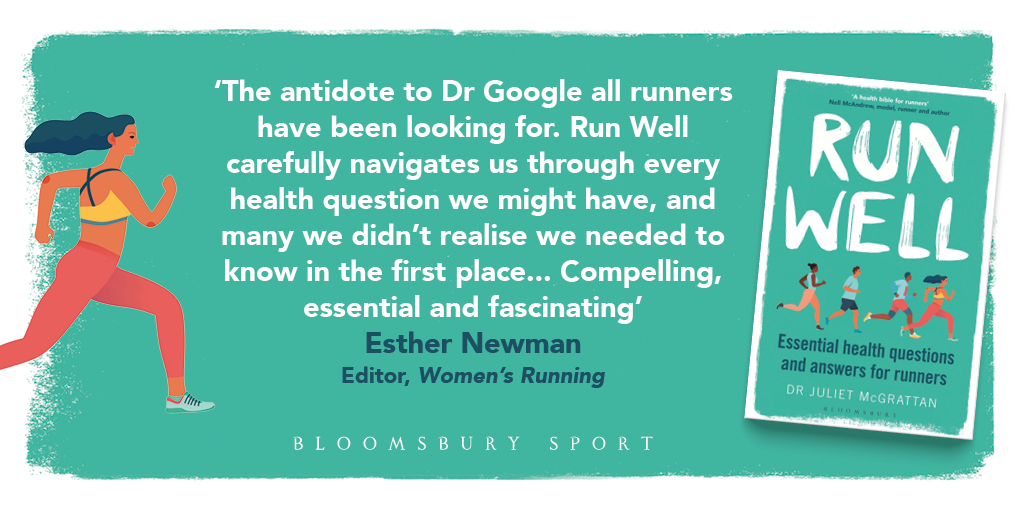**Trigger warning** First of all, if you’re reading this after a miscarriage, I’m so sorry this has happened to you. I am very fortunate not to have lost a baby but I have supported many friends and patients who have and I know that it can be a very emotional experience as well as physically tough too.
Despite working as a junior doctor in Obstetrics and Gynaecology and as a GP, when the first patient asked me when it was safe to run after a miscarriage, I didn’t know the answer. Like many things in medicine, no one directly teaches you the answer, there’s not a ‘one-size fits all’ approach and a lot of it comes down to common sense rather than evidence-based research.
From my experience and knowledge of the body and of running, these are the things I think you need to bear in mind when running after a miscarriage:
How many weeks pregnant you were. Pregnancy loss at any number of weeks can be devastating. A miscarriage is emotionally draining at any time. In terms of returning to running, the more developed the pregnancy, the bigger the effect on you physically. An early miscarriage happens before 12 weeks and a late one from 12 to 24 weeks. Clearly, your body will have changed much more significantly 24 weeks into a pregnancy than it would at 6 weeks. That being said you can experience tender breasts, weight gain and fatigue at all stages.
How much bleeding you have had. It’s normal to bleed after a miscarriage. It usually gets gradually lighter over the course of three to four weeks. If you have bled heavily or for a prolonged time you may be anaemic. This means you have low levels of red blood cells circulating. The red blood cells carry oxygen around the body and a low level can result in you feeling tired, breathless and light headed, especially if you exert yourself. Avoid running if you are bleeding heavily. Wait until the loss has reduced or stopped and don’t run if you think you are anaemic – speak to your doctor.
The treatment you have had for your miscarriage. You may not need any treatment for your miscarriage and just experience low abdominal pain and heavy bleeding. Some miscarriages are what we call ‘missed miscarriages’. This means the baby has died in the womb but you have not had pain or bleeding. You might miscarry naturally in the weeks that follow but you may also be offered medication to help you pass the baby or surgical treatment to empty the womb while you are under anaesthetic. Your treatment and experience of it will determine how physically robust you feel and therefore when you feel ready to run. With a late miscarriage you will need to go through labour and deliver your baby. Returning to running will take longer. You will need to think about strengthening your core and pelvic floor before doing high impact exercise.
How you feel mentally. Never feel any pressure to return to running. Some women want to run as soon as possible to help them cope with the emotional side of a miscarriage. Running can offer a quiet time for you to be with your thoughts or chatty distraction with running friends. For others however, running is the last thing on their minds. It’s common to feel that your body has let you down in some way. While running can help you to build that relationship again it can take time. Be patient and kind to yourself.
‘Post-miscarriage I found running when my body was ready helped me lose the natural weight-gain and equally, supported my mental health. As I knew I wanted to try and conceive again, running helped me to prepare my body and mind as my greatest goal after loss was to feel strong again. I’m now six months pregnant with my rainbow baby.’
Vicki Broadbent; honestmum.com
How to returning to running after a miscarriage
When you do feel ready to try running again, don’t rush it. Follow these steps to help you have a safe and smooth return:
- Take things slowly. Warm up well. Start with a brisk walk and gradually build up frequency and intensity.
- Make sure you are well fuelled and hydrated.
- Wear an extra supportive sports bra if your breasts are tender.
- Listen to your body and take a break or stop if you need to.
- If your bleeding restarts or increases then rest and try again in a couple of days.
- If your discharge is smelly, discoloured or you have abdominal pain or a fever then it could indicate an infection. Don’t run and do speak to your doctor.
- Enjoy some pressure free runs rather than set an immediate target. Just spend time finding your feet again.
- Don’t worry if the tears, anger or frustration come. Sometimes that therapeutic thud of feet hitting the pavement helps your brain to process everything and emotions pour out.
Remember that running can help you on your journey after a miscarriage. It should never however be a pressure. If you don’t feel like running, then don’t run. It will always be there when you are ready.
You can get further advice and support from The Miscarriage Association and Tommy’s.
There are more women’s health and running questions in my book Run Well: Essential health questions and answers for runners published by Bloomsbury and available from all good book sellers.








